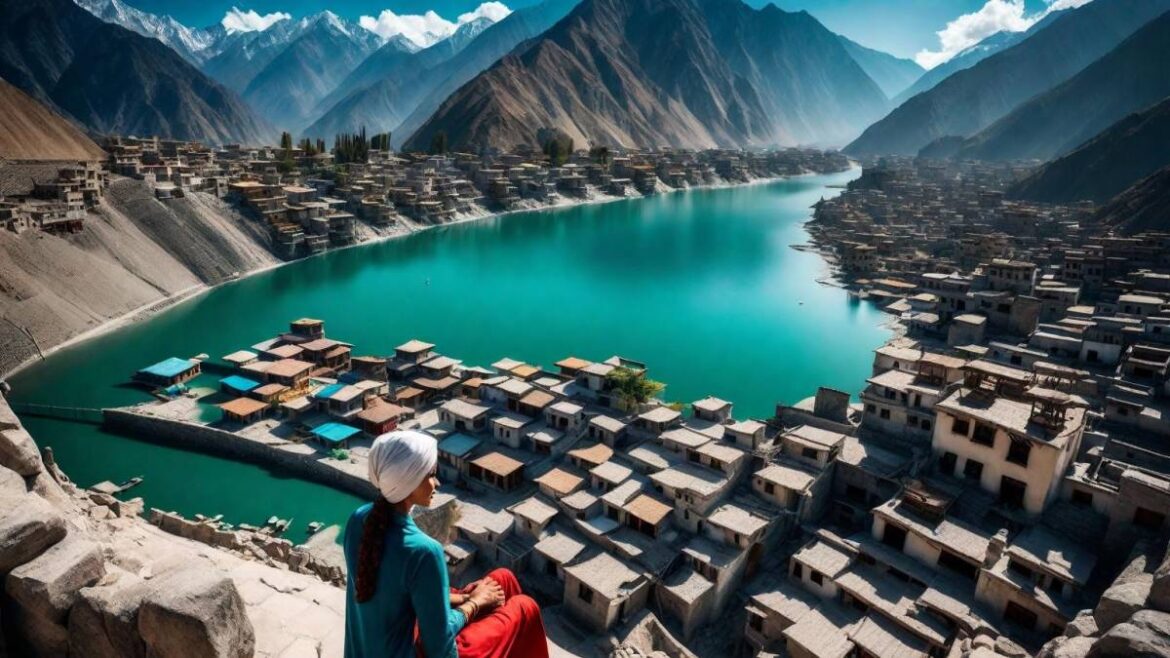ISLAMABAD: For 48-year-old Rozeena Bibi, life in the remote Sherqilla village of Gilgit-Baltistan was simple. She grew staples such as wheat and corn, reared some livestock, and took care of her family. Her life, though, changed when a flood swept through the valley, washing away her fields and her house.
She was forced to migrate to Gilgit city, the seat of power for the territory in the north of Pakistan.There, she had to work multiple jobs as a cleaner to support her three children and husband.
“[Our house was] declared unfit for habitation (by finding as dangerous the site on which the house was built) in the survey of government Pakistan and ordered to move immediately from there,” Rozeena recalls, adding that they were forced to move to Gilgit city because the flood caused by climate change.
Pakistan ranks seventh among the countries most affected by climate change. Over the past two decades, Pakistan has seen 139 natural disasters, including some that have been devastating. The floods of 2022 impacted over a third of Pakistan’s land mass. According to the Federal Flood Commission, adopting modern technology is necessary to protect the country from the effects of climate change.
Even though the government assessed that their home was unsafe for habitation, Rozeena claims the government has provided them with little support.Unable to return, she has had to build a new life in the city.
“I have three children while my husband has picked up a drug addiction and does not do any work,” Rozeena lamented, adding that she was forced to work to bear their living expenses.Rozeena said that the only work she could find was as a cleaner. She picked up multiple jobs in schools and offices around Gilgit city.
“I go to school at 6 a.m. and clean there until late afternoon. Sometimes, I come back at 4pm or 5pm and clean some offices. After that, I come home and tend to some housework,” she tells The Friday Times, crying that she is facing a bundle of problems. I go to the market by myself to buy flour and oil and do everything myself.
When asked whether she received any help when the floods came, Rozeena said they neither got rations nor money.”Inflation is quite high, but the government has not provided any help.”She, however, still hopes to return to her native village and resume farming.
According to the United Nations, around 80% of the people displaced by climate change are women or girls. These people face heightened risks from poverty, violence, or unintended pregnancies as they migrate from disaster-hit areas to safer locations.
Women’s vulnerability to climate change stems from several factors, including social, economic, and cultural. Around 70% of the 1.3 billion people living in poverty are women. In urban areas, 40% of the poorest households are headed by women. Despite that, women dominate the world’s food production workforce (50-80 percent) but own less than 10% of the land.
Environmental experts warn that Pakistan is at the mercy of climate change, and urgent measures are needed to reduce the damage caused by climate change.


